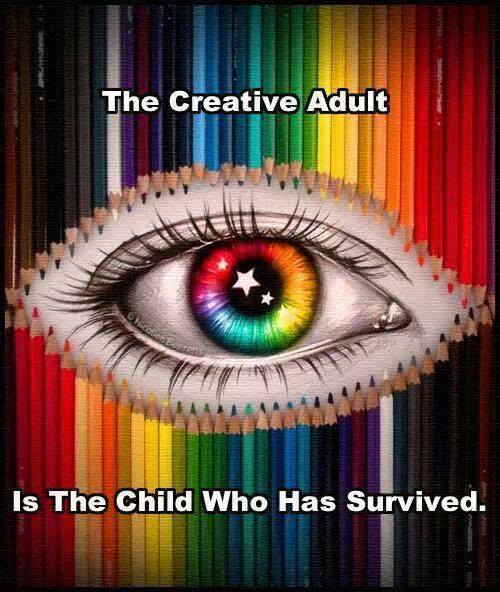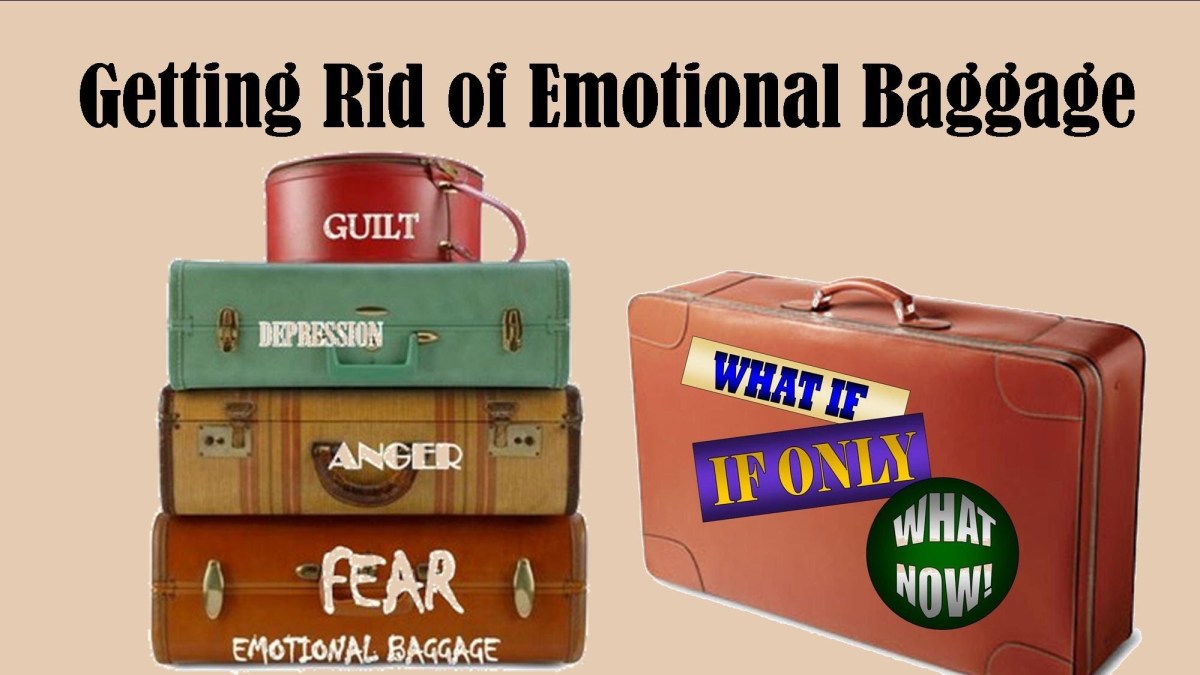The Power of the Written Word: The Benefits of Journaling
To read the Introduction first: http://mindzntransit.hubpages.com/hub/The-Power-of-the-Written-Word

I guess it depends on what your definition of “magic” is whether or not you would agree with me. Let’s begin this exploration into the magic that is personal writing by focusing on the benefits oforganizing, clarifying, expressing and releasing thoughts and feelings to your inner and outer lives.
The benefits come in different levels.
Many people are visual learners and I’ve come to use a couple illustrative tools to help people in my workshops and groups about journaling quite a bit to drive my points home. When talking about “organizing and clarifying” our thoughts and emotions, I take a blank piece of paper and print the alphabet from A to F, each letter on top of each other, on the paper so the participants can see it.
I ask them, “Ok, what is this?” Of course they answer in lose unison, “The alphabet to F.”
I then ask, “If you didn’t see me do that, would you be able to tell what this mess is?” pointing to the paper.
They all took a couple seconds to look it over again and one by one admitted that they probably wouldn’t have been able to tell what the pile of letters where.


“This is what your thoughts and feelings can look like in your head and heart. And if so, they are unrecognizable. And when we can’t recognize our thoughts and feelings within us, we can’t deal with them. We often won’t even know that we are feeling certain feelings, let only know why we are feeling them. Our mind and heart likes to protect us from certain internal turmoil so it creates a system of defenses to help us avoid and deny what upsets us in some way. Once we identify our thoughts and feelings, we can work with them and set them free by following up with what is needed.
I then pass out balloons. At this point, the group is giggling with both curiosity and nervousness.
I hold my own up. “Now, imagine this balloon is in your belly. And the air that goes in will be the energy that goes down into your being every time you, for a variety of personal reasons (adding with attempts to alleviate personal judgment), decide to suppress an emotion or thought that develops within you as a result of the events that cross your path.”
I then ask them to imagine their day, beginning with first thing in the morning. I come up with examples of occurrences that can happen along the day. I ask them to imagine themselves stuffing down their own reactions to “keep the peace”, to avoid “rocking the boat” and avoid having to deal with other people’s reactions. I ask them to blow up the balloon with one breath for each time they would choose to keep their own thoughts and feelings to themselves. Everyone’s balloon eventually grew to a large size.
While each participant holds their fully blown balloon in their pinched index finger and thumb, I demonstrate with me own blown up balloon, “Now, what happens when we have a full load of pressured, emotional energy within us and some innocent by-stander like one of our kids or the pet dog irritates us or even slightly inconveniences us with this tension within us building?” I take my two index fingers and thumbs and pull the pinched mouth of the balloon apart, stretching the opening. It lets out a high-pitched squeal. “We snap at them.”
The rest of the participants let out a couple squeals each with their balloons.
“This is not fair to others and can even get ourselves into a little trouble, but it’s our mind and body’s way of releasing some of the pressure. This is something we can avoid with journaling”
“And then – what we really want to avoid is – what happens when we can’t take the build-up of emotionally energetic pressure anymore and we let our stuff fly?” I instruct the group to let go of their balloons and I, too, let go. All the balloons take off into the air, looping around and shooting off in their own chosen directions. I led this exercise last Monday and I’m still finding balloons behind furniture in my group room!
The exercise is kinda fun and we laugh at the silliness, but it also drives home just a couple of things that can happen if we don’t find ways to express and release what we tend to let build up inside us. Journaling is one of the best ways, I believe.
Our interpersonal experience can greatly benefit from using the power of the written word to clarify and release our thoughts and emotions.

When confronting someone has highly negative consequences:
Do you have anyone in your life who has a short fuse and gets angry easily? Seems overly-sensitive? Do you know anyone who seems to be able to easily “make you feel” guilty for standing up for yourself? You might decide that the consequences for confronting that person are more harmful than the benefits of the confrontation. That’s up to you. However, it is still important for your own emotional well-being to get that energy out of you. Writing a letter to this person without any intension of giving it to them allows you to say, in writing, everything you’ve needed to say to that person, without the consequences. Reading it over doubles the helpful impact. And then it might be a good thing to destroy the evidence, depending on your living situation and privacy issues.
This exercise can help in both clarifying and releasing areas. The releasing part is apparent, I would think, but also writing down what’s going on inside you regarding a certain person without filtering and sensoring can bring out exactly how you think and feel about them, further than what you’re a consciously thinking about. These little tidbits can be essential to making associations to events from your past to your present situations that can heal the necessary wounds.
Magic.
To release emotions too intense before confronting:
Remember that mass balloon propulsion in my group room I mentioned earlier? This is what we want to avoid right? When we’ve swallowed and swallowed. When we’ve held in in, day after day, piling more and more on, finally confronting can look and sound like a vicious assault that will get you nowhere but the other person going into defense mode and even have their own blown up balloon inside that is dying to be let out and you get to be THEIR innocent by-stander.
Writing down all the nastiness inside you that is created by the negative thoughts and emotions that have been festering first will help to present your case, so to speak, more clearly and in control. Scribbling largely all the potent swear words that are just dying to escape and slap upside the head, will help prevent you from accusing and saying things you may regret and can’t take back. As a friend of mind said once, “Those words are like toothpaste, once they come out, you can put them back in the tube.”
To release thoughts and emotions unable to verbalize due to unavailability to recipient:
Sometimes it’s not that we don’t want to confront someone. Sometimes it’s because we can’t confront them. For example, it is common for someone to have their “stuff” come to the surface after a parent passes away. Suddenly childhood memories come up and connect with their partnering emotions and that balloon is instantly to its biggest capacity and will burst if not addressed in some way. And what needs to come out, needs to come out to the recently deceased. Now what?
I’ve held a few fire ceremonies over the years where the participants can write down anything on small pieces of paper, put them in a paper bag, say a few words, and then toss it all into the fire. It’s a surprisingly emotional exercise.
I’ve heard several stories of people slipping a letter to a loved one while they were resting comfortably in their coffin during the funeral.
Even years later, whenever needed, a letter to someone who is no longer around us for whatever reason, is highly therapeutic.
Mindfulness - "in the now"
More and more, as our years go on, we seem to need more help in keeping ourselves organized. We challenge ourselves continually with a daily juggle that would have both amazed us some 60 years ago and caused us to shake our heads.
I myself, find my day planner, which is a full size, spiral-bound, notebook I print the date and template of work areas and tasks on each page on the right side, while leaving the left side for online work tracking. The system I’ve set up has become like my administrative assistant. I don’t have to remember everything that has to be done each day because my assistant has that information ready for me at any moment of the day.
Releasing and organizing everything I have to do allows me to let all those things go and stay in the moment. This is where they say we are our most powerful – in the now.
Problem-solving steps:
I big part of feeling like we are in charge of our lives is having the ability to solve our own problems. Writing out our situation using the 5 problem-solving steps helps us to figure things out.
-
Identify the problem. Write it down and read it out loud.
-
Brainstorm all the possible solutions to the problem. At this point, don’t focus on whether or not each solution is good or not, just brainstorm all possibilities.
-
Now, consider the outcome to each of the solutions. Obviously, toss out any and all options that would land you in jail. Then drop those with severely, negative consequences and whittle down to the best solution.
-
Choose the best solution.
-
Create a plan to implement the chosen solution.
Imagine going through the whole process without writing it all down. Good luck with that!
Create your own reality!
If you believe in the Law of Attraction, then you might believe that written your goals and intentions down on paper creates focused thought in your mind that then gets sent out, in the Universe, and causes a request. The Universe then begins to coordinate to respond to your request. But I must warn, be careful what you wish for because you don’t get to have any control how to get your wishes granted. Given that, imagine how much power this gives you! This is the real magic! You get to create your own reality!!
Releasing anger:
Passive-aggression is caused by the inability to directly feel and express anger. For some reason, usually provided in our childhood, we get the message that it’s not ok to be or express anger. But since anger is a natural and human response to anything that can be considered injustice, we actually do get angry quite a bit. Whether we allow ourselves the experience or not is another story. Take a moment to look up the definition and dynamics of passive- aggressive behaviours. We all have them to some degree simply because very few of us have been raised in a way that allows us to be comfortable with our own anger and to give ourselves permission to directly and appropriately express and communicate it. So we let it leak out of us quietly like a slow, secretive air leak from the balloon. Journaling our anger releases that emotional pressure of anger and reduces the need to release it through the back door.
Do you remember?
One of the clearest and most common reasons, and therefore benefits, to write things down is assisting with our memory. Enough said. The barrier to this benefit is that people perceive the need to write things down as a sign of getting old or associating it with losing personal control. While I can see how one might it this way, I do want to include that I’ve been journaling all my life and writing everything down since I was in my early 30’s and I feel so much more in control of my life when things are all written down. I am a master list-maker. Hell, I make lists about lists!
Another benefit of writing things down is the sharing of information. You have a lot to offer others, whether you know it or not. There are people out just waiting to receive the magical points of info from you that could change their lives forever.
Ebook written by the author of the article
One of the most powerful and magical benefits to journaling is the multitude of opportunities to learn something about yourself and your world. Realizations can hit you like a lightning bolt and can change your life from that point on. Sometimes specific and purposeful journaling can be better than a therapist. Most inner child work can be accomplished through guided journaling exercises, along with a source of validation, anchoring and grounding from a real person from time to time.

All journaling taps into the right side of the brain and triggers creative muscles that often become dormant simply from living “the adult experience” based on traditional and let’s face it, boring and spirit-numbing expectations society provides us. Journaling enhances creative thinking beautifully, bringing that wonderful part of you alive, that part of you that might have been left behind by growing up!
While researching the benefits of journaling years ago while preparing for my classes at Wellspring Niagara, I came across a fabulous statement that just about says it all. “Journaling is effective when dealing with loss and grief, coping with life-threatening or chronic illness, recovery from addictions, eating disorders, trauma, repairing troubled marriages and family relationships, increasing communication skills, developing healthier self-image, getting better perspective on life, and clarifying life goals.
Yep. Magic.









